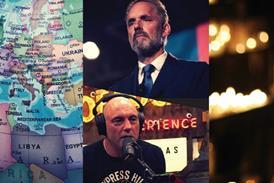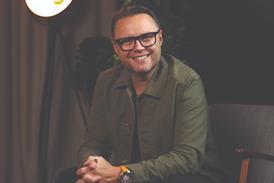
A friend of mine recently posted on social media: “We don't give to serve our own interests, we give to bless and serve others.” She was talking about aid to Africa, and while I love the sentiment, it’s not entirely accurate.
When we are talking about wealthier nations as a whole, we aren't ‘giving’ to Africa at all. We take from it, indeed we steal from it, and we have been doing it for hundreds of years.
Too often we think that Africa is poor, and we in the richer parts of the world give to Africa out of our generosity, when the reality is that Africa is rich, and we in the global north have both become wealthy and stayed wealthy because we have been taking its wealth. If we truly want to help Africa, we must begin by stopping the stealing.
In 2017, Global Justice Now released their updated Honest Accounts report which detailed how money moved between Africa and the rest of the world. Each year while $162 billion flows into Africa, $203 billion flows out. Africa is a net contributor to the rest of the world to the tune of $41 billion every single year. There are numerous ways in which these funds are taken from the continent inappropriately. In the past these included our activities during the colonial era and slave trade, but in the contemporary period they include debt servicing and especially the way in which the global north facilitates tax dodging.
Every year, multinational enterprises do business in Africa. The continent has the gold and diamonds we like to wear; the oil that fuels our lifestyles; and the copper and cobalt that go into much of our technology. You're probably using or wearing something right now which was dug out of African soil. Such business is very profitable, and like any profitable business the companies involved should be paying taxes to African governments. After all, it is Zambian copper that is being extracted or South African gold, or Ghanaian oil. Those taxes when paid go to support the Zambian, or South African or Ghanaian public services. They pay the salaries of teachers, they fund the healthcare that is provided. However, too many of those companies find ingenious ways to avoid paying those taxes, and they do this to the tune of $60-70bn a year - that's three times the amount the continent receives in official aid.
In relation to debt servicing, some might argue that these countries shouldn’t have borrowed in the first place – though that is to ignore the role global north companies and governments played in encouraging corrupt rulers to accept the loans. However, in respect of tax dodging, there is no excuse at all. These companies owe the African governments this money. It is their copper or cobalt or oil or gold that is being dug out the ground; it is their workforce that is doing the digging; and it is their infrastructure of roads and ports that enables the exports of these goods. The companies owe Africa, and yet to the tune of $70bn a year they find immoral ways to avoid paying the tax they owe.
Now we might think, "Hang on! I’m not the one doing the stealing; it is those bad multinational corporations doing it." That is true. But we are the ones who buy the goods from those companies and it is our government that is facilitating these practices. Currently, the international community is renegotiating the global tax rules but there is precious little evidence that the UK government is prioritising the needs of poorer countries in the process. We may not be directly involved but through our consumer decisions and through our lobbying (or lack of it) we bear some responsibility. Cynthia Moe-Lobeda, one of my favourite theologians, once said that when we give aid to Africa, we should not think of it as charity but merely the return of “stolen goods”. That is the challenge to us all.
Dr Justin Thacker is the director of Church Action for Tax Justice
Premier Christianity is committed to publishing a variety of opinion pieces from across the UK Church. The views expressed here do not necessarily represent those of the publisher




























